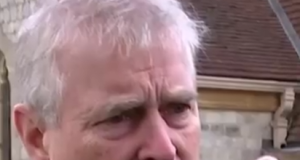Charges against a high-frequency trader for helping to spark the 2010 "flash crash" present a test of U.S. prosecutors' ability to win a big market manipulation case and may make other traders nervous they may be next, lawyers said on Tuesday.
The charges against Navinder Singh Sarao, 36, drew reactions of astonishment from securities lawyers interviewed by Reuters because criminal charges for market manipulation are so rare.
Sarao was arrested in the United Kingdom, after being charged in U.S. District Court in Chicago with fraud and manipulation. Authorities said he traded from his UK home using tactics such as "layering" and "spoofing," which traders use to place orders that they cancel before they are executed to create the false impression of demand.
The U.S. Justice Department said it is requesting his extradition. There was no answer at Sarao's house in the London suburb of Hounslow on Tuesday. British police said he will appear at a London court on Wednesday. The U.S. Commodity Futures Trading Commission filed related civil charges.
Although regulators frequently bring civil cases for alleged manipulation, especially in the world of penny stocks, proving a criminal case is much more difficult, the lawyers said. Prosecutors need to show that a trader such as Sarao intended to artificially influence prices rather than trade legitimately, and they need unanimous support from a jury to win their case.
To show intent, prosecutors will likely point to trading patterns to try to show Sarao never intended to fulfill his trades, or they may use documentary evidence such as emails if they have it, the lawyers said.
Prosecutors' decision to charge Sarao indicates they think they can meet the higher burden in his case, said Jonathan Macey, a professor at Yale Law School. "The most amazing thing is that it's a criminal charge," he said.
The case marks the first time U.S. regulators have alleged that market manipulation played a role in the flash crash, in which the Dow Jones Industrial Average plunged more than 1,000 points before recovering somewhat toward the end of trading.
The securities lawyers agreed in interviews that U.S. prosecutors appeared to have very detailed allegations about the sequence and types of orders Sarao put in, which may indicate they have a strong case.
But the lawyers said that if Sarao pleads not guilty, he has options for his defense, beginning with his intent.
"That defense likely will be that, in the commodities market, he had a right to take naked short positions and that the government cannot prove criminal intent because, in certain markets, it is permissible to engage in naked short selling," said Jacob Frenkel, a former enforcement lawyer with the U.S. Securities and Exchange Commission now in private practice.
Naked short selling occurs when an investor taking a short position sells a security without at first borrowing it or making sure that it can be borrowed.
Duke University law professor James Cox said Sarao's defense "may be technical, to try to put a more benign context on his order trail." But he added, "That's going to be very unlikely."
In another rare manipulation case, defense lawyers have attacked a provision of securities law. Lawyers for high-frequency commodities trader Michael Coscia of New Jersey sought to have his indictment from October thrown out on the basis that the charge of "spoofing" is too vague.
But last week, a federal judge denied their motion, leaving the indictment in place. No trial date has been set. A lawyer for Coscia did not return a call for comment on Tuesday.
Securities lawyers said Sarao's case may have wider significance by creating an example of someone. Many high-frequency traders cancel many of their trades before they are filled, they said.
"This complaint uses frequent cancellation of orders as evidence of intent to deceive the market and drive prices down. That may cause some anxiety among high frequency traders who cancel the majority of their trades," said Columbia Law School professor John Coffee.
As for how many trades can be canceled before drawing the attention of authorities, Coffee said: "The answer's always going to be gray."




